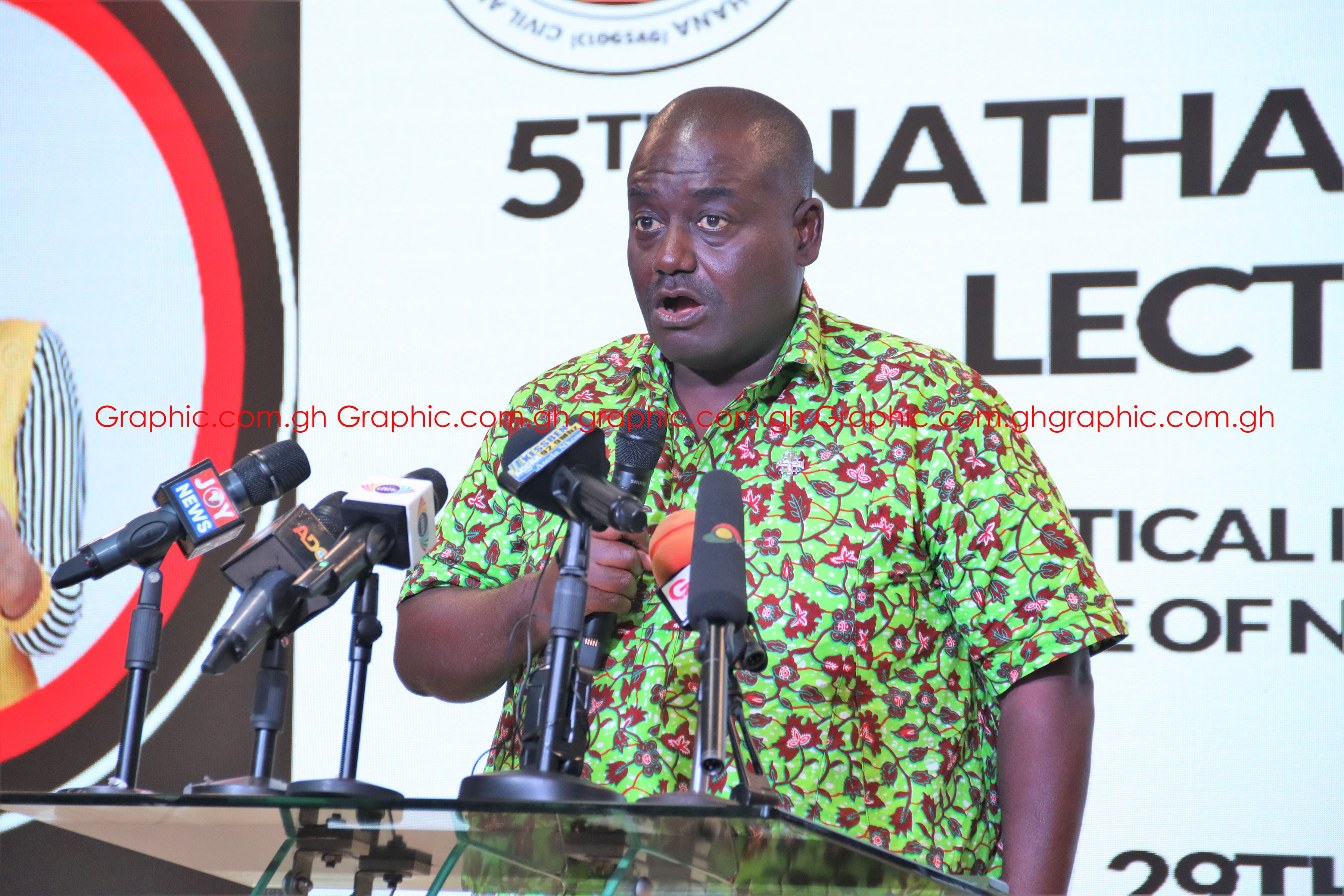
Don't touch tier 2 pension funds - Forum to government
The Forum for Public Sector Associations and Unions, a labour group in the public sector, has cautioned the government against any attempt to restructure the country's debt to affect tier two pension contributions placed in government securities.
According to the public sector workers, about 94 per cent of their tier two pension funds had been placed in government securities.
The Chairman of the forum, Isaac Bampoe Addo, at a press conference in Accra yesterday, said the forum would reject any decision by the government to touch the funds.
It said members could not suffer double agony, taking into consideration the economic challenges affecting the country in recent times.
Present at the press conference were the leadership of the National Association of Graduate Teachers, the Ghana Registered Nurses and Midwives Association, and the Ghana Medical Association.
Context
The government is holding talks with the International Monetary Fund (IMF) for an economic support, including foreign currency injection to support the country’s import bill.
As part of the IMF-backed programme for which a Debt Sustainability Analysis (DSA) is underway, some analysts have predicted that a deal would force the country to restructure its debt to make it sustainable.
That would lead to investors in government securities, including bonds and treasury bills, losing some interests, and possibly principals, a phenomenon that will have a pass through effect on every investor in the economy.
One of the analysis by Joy News captioned, "Restructuring Ghana's Debt: 94% of the tier two pension fund may be affected," compelled the forum to write to the National Pensions Regulatory Authority (NPRA) to seek clarification.
Assurance
Mr Addo said the NPRA gave the forum an assurance that there was no such policy or decision at the moment to restructure Ghana's debt with regard to the 94 per cent of tier two pension contributions placed in government securities.
The occupational pension schemes, he said, were managing the tier two pensions funds that would allow the schemes to pay better lump sum to their contributors on retirement and, therefore, if the government would want to touch the funds that were privately managed, it would be tantamount to the government reaping where it had not sown.
"If the government was to pursue the restructuring of Ghana's debt by touching pensions funds placed in government securities, it would be tantamount to deceit of benefits envisaged under the three tier pensions scheme".
Buttressing the point with some provisions in the National Pensions Act, 2008 (ACT766), Mr Addo said section 102(1) stated that: "the accrued benefits of a member in an occupational pension scheme shall not be attached in execution of a judgment debt or be used as a charge, pledge, lien or be transferred, assigned or alienated by or on behalf of the member".
The forum leadership indicated that any action of the government in that regard would violate the provisions on preservation and protection of the pensions funds under the Act.
Background
The decision to place a high proportion of tier two funds into government securities was because the government paid all the Temporary Pension Fund Account (TPFA) at the Bank of Ghana into government securities.
"Therefore any problem associated with the government securities should be fully resolved by the government," Mr Addo stressed.
Consultations
One of the options which was pursued by the Ghana Amalgamated Trust (GAT) set up to salvage banks was to use the tier two pension funds.
Mr Addo said the forum was appalled at the composition of the Consultative Committee on financial sector stakeholder engagement.
He explained that the Chairman of the consultative committee, Albert Essien, who was a prominent member of GAT, would be more disposed in recommending the use of tier two pension funds as part of the restructuring of Ghana's debt.
Mr Essien’s involvement in GAT and as the Chairman of Ghana Stock Exchange, among others, made him an interested party deemed as conflict of interest, which could skew his output towards the interest of the government, the chairman of the forum said.
"In any way, the success or otherwise of GAT has not been made public nor has the cost of services of GAT been made known," he indicated.
Past credit
Mr Addo said past credit in the custody of the Social Security and National Insurance Trust (SSNIT) that ought to be transferred to the public sector schemes were still in a limbo, adding that "for all these years, SSNIT has not been able to compute the amount that ought to be transferred to each of the public sector schemes".
He, therefore, called on SSNIT to act expeditiously to bring closure to the matter.
